Abstract:
The dilemma between the ever-increasing demands for data processing, and the limited capabilities of mobile devices in a wireless communication system calls for the appea...Show MoreMetadata
Abstract:
The dilemma between the ever-increasing demands for data processing, and the limited capabilities of mobile devices in a wireless communication system calls for the appearance of federated learning (FL). As a distributed machine learning (ML) method, FL executes in an iterative manner by distributing the global model parameters and aggregating the local model parameters, which avoids the transmission of huge raw data and preserves data privacy during the training process. However, since FL cannot control the local training and transmission process, this gives malicious users the opportunity to deteriorate the global aggregation. We adopt a reputation model based on beta distribution function to measure the credibility of local users, and propose a reputation-based scheduling policy with user fairness constraint. By taking into account the impact of wireless channel conditions and malicious attack features, we derive tractable expressions for the convergence rate of FL in a wireless setting. Moreover, we validate the superiority of the proposed reputation-based scheduling policy via numerical analysis and empirical simulations. The results show that the proposed secure wireless FL framework can not only distinguish malicious users from normal users but also effectively defend against several typical attack types featured in attack intensity and attack frequency. The analysis also reveals that the effect of average attack intensity on the convergence performance of FL is dominated by the percentage of malicious user equipments (UEs), and imposes even greater negative effect on the convergence performance of FL as the percentage of malicious UEs increases.
Published in: IEEE Internet of Things Journal ( Volume: 9, Issue: 2, 15 January 2022)
Funding Agency:
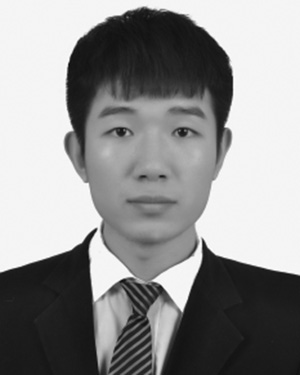
College of Information Engineering, Northwest A&F University, Yangling, China
Zhendong Song received the B.E. degree in software engineering from the Wuhan Institute of Technology, Wuhan, China, in 2019. He is currently pursuing the master’s degree with the College of Information Engineering, Northwest A&F University, Yangling, China.
His research interests mainly focus on federated learning in wireless networks, deep learning, and blockchain applications.
Zhendong Song received the B.E. degree in software engineering from the Wuhan Institute of Technology, Wuhan, China, in 2019. He is currently pursuing the master’s degree with the College of Information Engineering, Northwest A&F University, Yangling, China.
His research interests mainly focus on federated learning in wireless networks, deep learning, and blockchain applications.View more
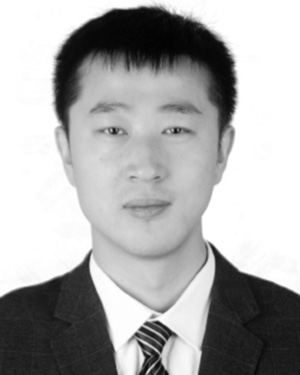
College of Information Engineering, Northwest A&F University, Yangling, China
Hongguang Sun (Member, IEEE) received the B.S. degree (with Distinction) in electronic and information engineering from Northeastern University, Shenyang, China, in July 2009, and the Ph.D. degree in communication and information system from Xidian University, Xi’an, China, in December 2015.
From January to July 2015, he was a visiting student with the Singapore University of Technology and Design, Singapore. From December...Show More
Hongguang Sun (Member, IEEE) received the B.S. degree (with Distinction) in electronic and information engineering from Northeastern University, Shenyang, China, in July 2009, and the Ph.D. degree in communication and information system from Xidian University, Xi’an, China, in December 2015.
From January to July 2015, he was a visiting student with the Singapore University of Technology and Design, Singapore. From December...View more
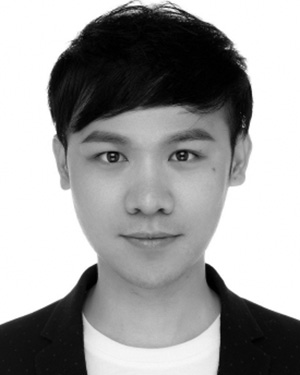
Zhejiang University/University of Illinois at Urbana–Champaign Institute, Zhejiang University, Haining, China
College of Information Science and Electronic Engineering, Zhejiang University, Hangzhou, China
Department of Electrical and Computer Engineering, University of Illinois at Urbana–Champaign, Urbana–Champaign, IL, USA
Howard H. Yang (Member, IEEE) received the B.E. degree in communication engineering from the Harbin Institute of Technology, Harbin, China, in 2012, the M.Sc. degree in electronic engineering from the Hong Kong University of Science and Technology, Hong Kong, in 2013, and the Ph.D. degree in electrical engineering from the Singapore University of Technology and Design (SUTD), Singapore, in 2017.
He was a Postdoctoral Resea...Show More
Howard H. Yang (Member, IEEE) received the B.E. degree in communication engineering from the Harbin Institute of Technology, Harbin, China, in 2012, the M.Sc. degree in electronic engineering from the Hong Kong University of Science and Technology, Hong Kong, in 2013, and the Ph.D. degree in electrical engineering from the Singapore University of Technology and Design (SUTD), Singapore, in 2017.
He was a Postdoctoral Resea...View more
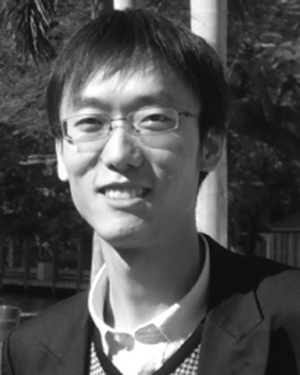
School of Electronics and Information Technology, Sun Yat-sen University, Guangzhou, China
Xijun Wang (Member, IEEE) received the B.S. degree (with High Hons.) in communications engineering from Xidian University, Xi’an, China, in 2005, and the Ph.D. degree in electronic engineering from Tsinghua University, Beijing, China, in January 2012.
He was an Assistant Professor from 2012 to 2015, and an Associate Professor with the School of Telecommunications Engineering, Xidian University from 2015 to 2018. From 2015 ...Show More
Xijun Wang (Member, IEEE) received the B.S. degree (with High Hons.) in communications engineering from Xidian University, Xi’an, China, in 2005, and the Ph.D. degree in electronic engineering from Tsinghua University, Beijing, China, in January 2012.
He was an Assistant Professor from 2012 to 2015, and an Associate Professor with the School of Telecommunications Engineering, Xidian University from 2015 to 2018. From 2015 ...View more
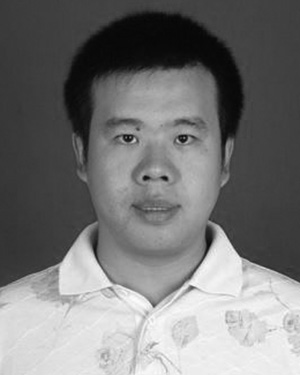
State Key Laboratory of Integrated Service Networks, Xidian University, Xi’an, China
Yan Zhang (Member, IEEE) received the B.S. and Ph.D. degrees in communication and information systems from Xidian University, Xi’an, China, in 2005 and 2010, respectively.
He is currently a Full Professor with the School of Telecommunication Engineering, Xidian University. His research interests include cooperative cognitive networks, self-organizing networks, and media access protocol design.
Prof. Zhang was honored with t...Show More
Yan Zhang (Member, IEEE) received the B.S. and Ph.D. degrees in communication and information systems from Xidian University, Xi’an, China, in 2005 and 2010, respectively.
He is currently a Full Professor with the School of Telecommunication Engineering, Xidian University. His research interests include cooperative cognitive networks, self-organizing networks, and media access protocol design.
Prof. Zhang was honored with t...View more
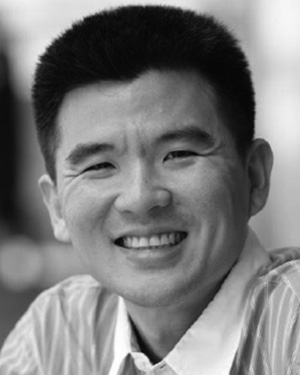
Information Systems Technology and Design Pillar, Singapore University of Technology and Design, Singapore
Tony Q. S. Quek (Fellow, IEEE) received the B.E. and M.E. degrees in electrical and electronics engineering from the Tokyo Institute of Technology, Tokyo, Japan, in 1998 and 2000, respectively, and the Ph.D. degree in electrical engineering and computer science from the Massachusetts Institute of Technology, Cambridge, MA, USA, in 2008.
He is currently the Cheng Tsang Man Chair Professor with the Singapore University of Te...Show More
Tony Q. S. Quek (Fellow, IEEE) received the B.E. and M.E. degrees in electrical and electronics engineering from the Tokyo Institute of Technology, Tokyo, Japan, in 1998 and 2000, respectively, and the Ph.D. degree in electrical engineering and computer science from the Massachusetts Institute of Technology, Cambridge, MA, USA, in 2008.
He is currently the Cheng Tsang Man Chair Professor with the Singapore University of Te...View more

College of Information Engineering, Northwest A&F University, Yangling, China
Zhendong Song received the B.E. degree in software engineering from the Wuhan Institute of Technology, Wuhan, China, in 2019. He is currently pursuing the master’s degree with the College of Information Engineering, Northwest A&F University, Yangling, China.
His research interests mainly focus on federated learning in wireless networks, deep learning, and blockchain applications.
Zhendong Song received the B.E. degree in software engineering from the Wuhan Institute of Technology, Wuhan, China, in 2019. He is currently pursuing the master’s degree with the College of Information Engineering, Northwest A&F University, Yangling, China.
His research interests mainly focus on federated learning in wireless networks, deep learning, and blockchain applications.View more

College of Information Engineering, Northwest A&F University, Yangling, China
Hongguang Sun (Member, IEEE) received the B.S. degree (with Distinction) in electronic and information engineering from Northeastern University, Shenyang, China, in July 2009, and the Ph.D. degree in communication and information system from Xidian University, Xi’an, China, in December 2015.
From January to July 2015, he was a visiting student with the Singapore University of Technology and Design, Singapore. From December 2015 to December 2018, he was an Assistant Professor with the School of Telecommunications Engineering, Xidian University. He is currently an Associate Professor with the College of Information Engineering, Northwest A&F University, Yangling, China. His current research interests include dynamic resource management, modeling of heterogeneous wireless networks, and Internet of Things.
Dr. Sun served as the technical program committee member for numerous IEEE conferences. He also served as the Session Chair for IEEE ICC 2020 and IEEE/CIC ICCC 2020.
Hongguang Sun (Member, IEEE) received the B.S. degree (with Distinction) in electronic and information engineering from Northeastern University, Shenyang, China, in July 2009, and the Ph.D. degree in communication and information system from Xidian University, Xi’an, China, in December 2015.
From January to July 2015, he was a visiting student with the Singapore University of Technology and Design, Singapore. From December 2015 to December 2018, he was an Assistant Professor with the School of Telecommunications Engineering, Xidian University. He is currently an Associate Professor with the College of Information Engineering, Northwest A&F University, Yangling, China. His current research interests include dynamic resource management, modeling of heterogeneous wireless networks, and Internet of Things.
Dr. Sun served as the technical program committee member for numerous IEEE conferences. He also served as the Session Chair for IEEE ICC 2020 and IEEE/CIC ICCC 2020.View more

Zhejiang University/University of Illinois at Urbana–Champaign Institute, Zhejiang University, Haining, China
College of Information Science and Electronic Engineering, Zhejiang University, Hangzhou, China
Department of Electrical and Computer Engineering, University of Illinois at Urbana–Champaign, Urbana–Champaign, IL, USA
Howard H. Yang (Member, IEEE) received the B.E. degree in communication engineering from the Harbin Institute of Technology, Harbin, China, in 2012, the M.Sc. degree in electronic engineering from the Hong Kong University of Science and Technology, Hong Kong, in 2013, and the Ph.D. degree in electrical engineering from the Singapore University of Technology and Design (SUTD), Singapore, in 2017.
He was a Postdoctoral Research Fellow with SUTD from 2017 to 2020, a Visiting Postdoctoral Researcher with Princeton University from 2018 to 2019, and a visiting student with the University of Texas at Austin, Austin, TX, USA, from 2015 to 2016. He is currently an Assistant Professor with the Zhejiang University/University of Illinois at Urbana–Champaign Institute, Zhejiang University, Haining, China. He is also an Adjunct Assistant Professor with the College of Information Science and Electronic Engineering, Zhejiang University, Hangzhou, China, as well as with the Department of Electrical and Computer Engineering, University of Illinois at Urbana–Champaign, Champaign, IL, USA. His research interests cover various aspects of wireless communications, networking, and signal processing, currently focusing on the modeling of modern wireless networks, high-dimensional statistics, graph signal processing, and machine learning.
Dr. Yang received the IEEE WCSP 10-Year Anniversary Excellent Paper Award in 2019, and the IEEE WCSP Best Paper Award in 2014.
Howard H. Yang (Member, IEEE) received the B.E. degree in communication engineering from the Harbin Institute of Technology, Harbin, China, in 2012, the M.Sc. degree in electronic engineering from the Hong Kong University of Science and Technology, Hong Kong, in 2013, and the Ph.D. degree in electrical engineering from the Singapore University of Technology and Design (SUTD), Singapore, in 2017.
He was a Postdoctoral Research Fellow with SUTD from 2017 to 2020, a Visiting Postdoctoral Researcher with Princeton University from 2018 to 2019, and a visiting student with the University of Texas at Austin, Austin, TX, USA, from 2015 to 2016. He is currently an Assistant Professor with the Zhejiang University/University of Illinois at Urbana–Champaign Institute, Zhejiang University, Haining, China. He is also an Adjunct Assistant Professor with the College of Information Science and Electronic Engineering, Zhejiang University, Hangzhou, China, as well as with the Department of Electrical and Computer Engineering, University of Illinois at Urbana–Champaign, Champaign, IL, USA. His research interests cover various aspects of wireless communications, networking, and signal processing, currently focusing on the modeling of modern wireless networks, high-dimensional statistics, graph signal processing, and machine learning.
Dr. Yang received the IEEE WCSP 10-Year Anniversary Excellent Paper Award in 2019, and the IEEE WCSP Best Paper Award in 2014.View more

School of Electronics and Information Technology, Sun Yat-sen University, Guangzhou, China
Xijun Wang (Member, IEEE) received the B.S. degree (with High Hons.) in communications engineering from Xidian University, Xi’an, China, in 2005, and the Ph.D. degree in electronic engineering from Tsinghua University, Beijing, China, in January 2012.
He was an Assistant Professor from 2012 to 2015, and an Associate Professor with the School of Telecommunications Engineering, Xidian University from 2015 to 2018. From 2015 to 2016, he was a Research Fellow with the Information Systems Technology and Design Pillar, Singapore University of Technology and Design, Singapore. He is currently an Associate Professor with Sun Yat-sen University, Guangzhou, China. He has been published in several IEEE journals and conference proceedings in the areas of wireless networks and patents related to heterogeneous networks. His current research interests include UAV communications, edge computing, and age of information.
Dr. Wang was a recipient of the Best Paper Award from the IEEE ICCC 2013. He also served as the Publicity Chair of IEEE ICCC 2013, and the Technical Program Co-Chair of the Wireless Communications Systems Symposium and IEEE ICCC 2016. He is currently a reviewer for several IEEE journals. He was recognized as an Exemplary Reviewer of the IEEE Wireless Communications Letters in 2014. He is currently an Associate Editor of the IEEE Access. He served as the technical program committee member for numerous IEEE conferences.
Xijun Wang (Member, IEEE) received the B.S. degree (with High Hons.) in communications engineering from Xidian University, Xi’an, China, in 2005, and the Ph.D. degree in electronic engineering from Tsinghua University, Beijing, China, in January 2012.
He was an Assistant Professor from 2012 to 2015, and an Associate Professor with the School of Telecommunications Engineering, Xidian University from 2015 to 2018. From 2015 to 2016, he was a Research Fellow with the Information Systems Technology and Design Pillar, Singapore University of Technology and Design, Singapore. He is currently an Associate Professor with Sun Yat-sen University, Guangzhou, China. He has been published in several IEEE journals and conference proceedings in the areas of wireless networks and patents related to heterogeneous networks. His current research interests include UAV communications, edge computing, and age of information.
Dr. Wang was a recipient of the Best Paper Award from the IEEE ICCC 2013. He also served as the Publicity Chair of IEEE ICCC 2013, and the Technical Program Co-Chair of the Wireless Communications Systems Symposium and IEEE ICCC 2016. He is currently a reviewer for several IEEE journals. He was recognized as an Exemplary Reviewer of the IEEE Wireless Communications Letters in 2014. He is currently an Associate Editor of the IEEE Access. He served as the technical program committee member for numerous IEEE conferences.View more

State Key Laboratory of Integrated Service Networks, Xidian University, Xi’an, China
Yan Zhang (Member, IEEE) received the B.S. and Ph.D. degrees in communication and information systems from Xidian University, Xi’an, China, in 2005 and 2010, respectively.
He is currently a Full Professor with the School of Telecommunication Engineering, Xidian University. His research interests include cooperative cognitive networks, self-organizing networks, and media access protocol design.
Prof. Zhang was honored with the Young Stars in Science and Technology of Shaanxi Province bioadjust in 2018.
Yan Zhang (Member, IEEE) received the B.S. and Ph.D. degrees in communication and information systems from Xidian University, Xi’an, China, in 2005 and 2010, respectively.
He is currently a Full Professor with the School of Telecommunication Engineering, Xidian University. His research interests include cooperative cognitive networks, self-organizing networks, and media access protocol design.
Prof. Zhang was honored with the Young Stars in Science and Technology of Shaanxi Province bioadjust in 2018.View more

Information Systems Technology and Design Pillar, Singapore University of Technology and Design, Singapore
Tony Q. S. Quek (Fellow, IEEE) received the B.E. and M.E. degrees in electrical and electronics engineering from the Tokyo Institute of Technology, Tokyo, Japan, in 1998 and 2000, respectively, and the Ph.D. degree in electrical engineering and computer science from the Massachusetts Institute of Technology, Cambridge, MA, USA, in 2008.
He is currently the Cheng Tsang Man Chair Professor with the Singapore University of Technology and Design (SUTD), Singapore. He also serves as the Director of the Future Communications R&D Programme, the Head of ISTD Pillar, and the Deputy Director of the SUTD-ZJU IDEA. His current research topics include wireless communications and networking, network intelligence, Internet of Things, URLLC, and big data processing.
Dr. Quek was honored with the 2008 Philip Yeo Prize for Outstanding Achievement in Research, the 2012 IEEE William R. Bennett Prize, the 2015 SUTD Outstanding Education Awards—Excellence in Research, the 2016 IEEE Signal Processing Society Young Author Best Paper Award, the 2017 CTTC Early Achievement Award, the 2017 IEEE ComSoc AP Outstanding Paper Award, the 2020 IEEE Communications Society Young Author Best Paper Award, the 2020 IEEE Stephen O. Rice Prize, the 2020 Nokia Visiting Professor, and the Clarivate Analytics Highly Cited Researcher from 2016 to 2020. He is currently serving as an Editor for the IEEE Transactions on Wireless Communications and an Elected Member of the IEEE Signal Processing Society SPCOM Technical Committee. He was an Executive Editorial Committee Member for the IEEE Transactions on Wireless Communications, an Editor for the IEEE Transactions on Communications and IEEE Wireless Communications Letters. He is a Distinguished Lecturer of the IEEE Communications Society. He has been actively involved in organizing and chairing sessions, and has served as a member of the Technical Program Committee as well as symposium chairs in a number of international conferences.
Tony Q. S. Quek (Fellow, IEEE) received the B.E. and M.E. degrees in electrical and electronics engineering from the Tokyo Institute of Technology, Tokyo, Japan, in 1998 and 2000, respectively, and the Ph.D. degree in electrical engineering and computer science from the Massachusetts Institute of Technology, Cambridge, MA, USA, in 2008.
He is currently the Cheng Tsang Man Chair Professor with the Singapore University of Technology and Design (SUTD), Singapore. He also serves as the Director of the Future Communications R&D Programme, the Head of ISTD Pillar, and the Deputy Director of the SUTD-ZJU IDEA. His current research topics include wireless communications and networking, network intelligence, Internet of Things, URLLC, and big data processing.
Dr. Quek was honored with the 2008 Philip Yeo Prize for Outstanding Achievement in Research, the 2012 IEEE William R. Bennett Prize, the 2015 SUTD Outstanding Education Awards—Excellence in Research, the 2016 IEEE Signal Processing Society Young Author Best Paper Award, the 2017 CTTC Early Achievement Award, the 2017 IEEE ComSoc AP Outstanding Paper Award, the 2020 IEEE Communications Society Young Author Best Paper Award, the 2020 IEEE Stephen O. Rice Prize, the 2020 Nokia Visiting Professor, and the Clarivate Analytics Highly Cited Researcher from 2016 to 2020. He is currently serving as an Editor for the IEEE Transactions on Wireless Communications and an Elected Member of the IEEE Signal Processing Society SPCOM Technical Committee. He was an Executive Editorial Committee Member for the IEEE Transactions on Wireless Communications, an Editor for the IEEE Transactions on Communications and IEEE Wireless Communications Letters. He is a Distinguished Lecturer of the IEEE Communications Society. He has been actively involved in organizing and chairing sessions, and has served as a member of the Technical Program Committee as well as symposium chairs in a number of international conferences.View more


